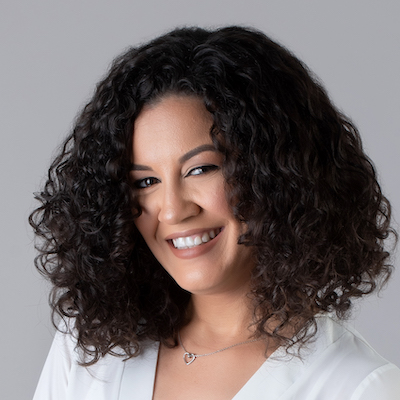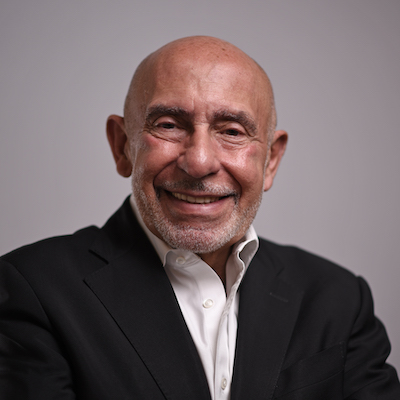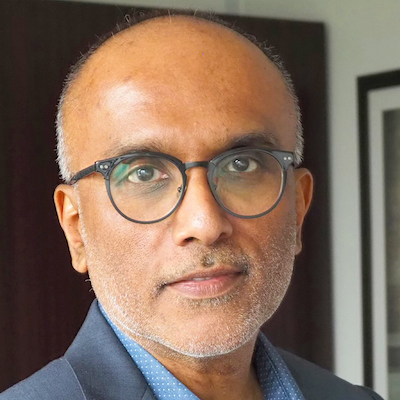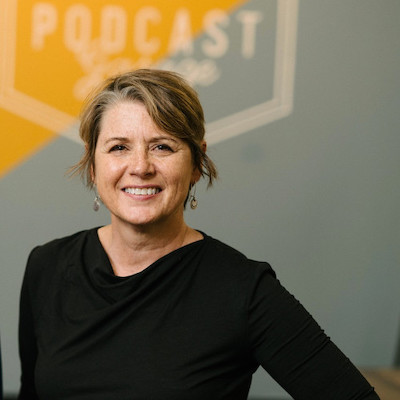The vulture funds are coming for local TV
There’s a large looming threat to local news — and it’s beyond all the hue and cry about local newspapers. While big publications often conflate the death of local newspapers with the death of local news, the information needs of communities these days are more often served by television journalism, along with newspapers and independent sites like mine, BoiseDev.com.
But the threat that’s being undercovered and underappreciated is the seismic changes to the cable bundle. Over the past several decades, local stations and networks have reaped billions in what’s known as retransmission consent payments. When you pay your cable, satellite, or over-the-top TV provider, much of that cash goes to the owners of the programming you watch. Changes to federal law in 1992 allowed local TV stations to start collecting those fees from the cable companies in exchange for the right to air NBC/CBS/ABC/Fox, etc., along with the local news that often comes along with it.
(If you’re still a linear TV customer and your favorite local channel has gone dark, it’s because the TV station owner and your TV provider are fighting over these payments.)
But with each passing day, fewer people are spending their hard-earned cash on the cable bundle. A decent proxy for the overall health of the bundle is ESPN. The sports powerhouse is carried almost universally across each cable provider. In 2011, the Disney-owned sports outlet announced it was available in 100 million homes. Ten years later, its latest filing with the SEC shows that figure dropped to 76 million. Fortunately, that makes for easy math and shows its total penetration has dropped by 24% in ten years. More troubling, the pace of decline is accelerating, with ESPN losing eight million subscribers in the most recent year.
But this isn’t about ESPN. ESPN has a robust strategy in place to shift users to its ESPN+ streaming service. NBC has Peacock, CBS has Paramount+, ABC has Hulu and Disney+, and so on.
This is about your local news providers. The ones without a real plan to shift to streaming down the road. The ones that still make the bulk of their revenue from linear TV. The ones that provide a significant amount of the local news output (and consumption) in any given market.
The national content providers are very aware of the troubling trends for their traditional business — that the cable bundle is falling apart. Most if not all are trying to figure out how to go from a world where they get a check from the cable company for every person who gets cable, regardless of whether they watch their content, to a world in which they have to convince customers one by one to fork over a credit card number for a monthly or yearly payment.
But at the local level, very few have decided to dive into the direct-to-consumer business. There are some experiments here and there, but no large TV group has gone all-in on trying to shift the business model. They’re stuck in the innovator’s dilemma of not wanting to upset the current apple cart — because for now, that apple cart remains a pretty tasty one. Traditional TV remains a top medium for political ads, and the shower of cash that falls on local stations at least every other year has proved to be a good business (the AP called it record-shattering in 2020).
But today’s tasty apples are tomorrow’s rotted mush. The newspaper industry has seen its fortunes sink over the last few decades, as “vulture capital” firms like Alden Global Capital rise. The short gist of a long story: Alden buys up lots of papers, cuts as much as possible on the expense side, and tries to manage the decline on the revenue side.
Is local TV next for that strategy?
My former employer, Tegna, has been in play for the last 18 months, with one potential buyer the paired-up hedge funds Standard General and Apollo Global Management. At stake is ownership of local TV stations in 54 markets. Neither hedge fund is known for its investment in the companies it buys.
For now, local TV news is still a cash-flowing investment. The hundreds of stations across this country contribute strong journalism and solid public service, and they make a material difference in the communities they serve. But nothing is forever, and without some unexpected and surprising changes, I have significant concerns about yet another pillar of local news in the United States.
Don Day is the founder and editor of BoiseDev.com.

There’s a large looming threat to local news — and it’s beyond all the hue and cry about local newspapers. While big publications often conflate the death of local newspapers with the death of local news, the information needs of communities these days are more often served by television journalism, along with newspapers and independent sites like mine, BoiseDev.com.
But the threat that’s being undercovered and underappreciated is the seismic changes to the cable bundle. Over the past several decades, local stations and networks have reaped billions in what’s known as retransmission consent payments. When you pay your cable, satellite, or over-the-top TV provider, much of that cash goes to the owners of the programming you watch. Changes to federal law in 1992 allowed local TV stations to start collecting those fees from the cable companies in exchange for the right to air NBC/CBS/ABC/Fox, etc., along with the local news that often comes along with it.
(If you’re still a linear TV customer and your favorite local channel has gone dark, it’s because the TV station owner and your TV provider are fighting over these payments.)
But with each passing day, fewer people are spending their hard-earned cash on the cable bundle. A decent proxy for the overall health of the bundle is ESPN. The sports powerhouse is carried almost universally across each cable provider. In 2011, the Disney-owned sports outlet announced it was available in 100 million homes. Ten years later, its latest filing with the SEC shows that figure dropped to 76 million. Fortunately, that makes for easy math and shows its total penetration has dropped by 24% in ten years. More troubling, the pace of decline is accelerating, with ESPN losing eight million subscribers in the most recent year.
But this isn’t about ESPN. ESPN has a robust strategy in place to shift users to its ESPN+ streaming service. NBC has Peacock, CBS has Paramount+, ABC has Hulu and Disney+, and so on.
This is about your local news providers. The ones without a real plan to shift to streaming down the road. The ones that still make the bulk of their revenue from linear TV. The ones that provide a significant amount of the local news output (and consumption) in any given market.
The national content providers are very aware of the troubling trends for their traditional business — that the cable bundle is falling apart. Most if not all are trying to figure out how to go from a world where they get a check from the cable company for every person who gets cable, regardless of whether they watch their content, to a world in which they have to convince customers one by one to fork over a credit card number for a monthly or yearly payment.
But at the local level, very few have decided to dive into the direct-to-consumer business. There are some experiments here and there, but no large TV group has gone all-in on trying to shift the business model. They’re stuck in the innovator’s dilemma of not wanting to upset the current apple cart — because for now, that apple cart remains a pretty tasty one. Traditional TV remains a top medium for political ads, and the shower of cash that falls on local stations at least every other year has proved to be a good business (the AP called it record-shattering in 2020).
But today’s tasty apples are tomorrow’s rotted mush. The newspaper industry has seen its fortunes sink over the last few decades, as “vulture capital” firms like Alden Global Capital rise. The short gist of a long story: Alden buys up lots of papers, cuts as much as possible on the expense side, and tries to manage the decline on the revenue side.
Is local TV next for that strategy?
My former employer, Tegna, has been in play for the last 18 months, with one potential buyer the paired-up hedge funds Standard General and Apollo Global Management. At stake is ownership of local TV stations in 54 markets. Neither hedge fund is known for its investment in the companies it buys.
For now, local TV news is still a cash-flowing investment. The hundreds of stations across this country contribute strong journalism and solid public service, and they make a material difference in the communities they serve. But nothing is forever, and without some unexpected and surprising changes, I have significant concerns about yet another pillar of local news in the United States.
Don Day is the founder and editor of BoiseDev.com.
Jody Brannon

Christoph Mergerson

Kristen Muller

Stephen Fowler

Stefanie Murray

Jesenia De Moya Correa

Shalabh Upadhyay

Ståle Grut

Gabe Schneider

Tamar Charney

Wilson Liévano

Matthew Pressman

A.J. Bauer

Meena Thiruvengadam

Joshua P. Darr

Jennifer Brandel

Simon Allison

Sam Guzik

Rachel Glickhouse

Zizi Papacharissi

Gordon Crovitz

Jennifer Coogan

Anthony Nadler

David Cohn

Ariel Zirulnick

Matt Karolian

Mike Rispoli

Mary Walter-Brown

Larry Ryckman

Paul Cheung

Kathleen Searles Rebekah Trumble

Izabella Kaminska

Julia Munslow

Tom Trewinnard

David Skok

Sarah Stonbely

Melody Kramer

Sarah Marshall

Daniel Eilemberg

Parker Molloy

Whitney Phillips

Mario García

Millie Tran

Tony Baranowski

Eric Nuzum

Kendra Pierre-Louis

Jonas Kaiser

Candace Amos

Julia Angwin

Amara Aguilar

John Davidow

Joni Deutsch

Moreno Cruz Osório

Jesse Holcomb

Anita Varma

James Green

Matt DeRienzo

Francesco Zaffarano

Juleyka Lantigua

Richard Tofel

Janelle Salanga

S. Mitra Kalita

Doris Truong

Rasmus Kleis Nielsen

Burt Herman

Gonzalo del Peon

Amy Schmitz Weiss

Natalia Viana

Raney Aronson-Rath

Kristen Jeffers

Andrew Freedman

Simon Galperin

Errin Haines

Laxmi Parthasarathy

Shannon McGregor Carolyn Schmitt

Don Day

Robert Hernandez

Anika Anand

Nikki Usher

Jessica Clark

Alice Antheaume

Megan McCarthy

Cherian George

AX Mina

Joanne McNeil

Catalina Albeanu

Chicas Poderosas

Joe Amditis

j. Siguru Wahutu

Kerri Hoffman

Brian Moritz

Chase Davis

Victor Pickard

Cindy Royal

Cristina Tardáguila

Joy Mayer

Mandy Jenkins

Jim Friedlich

Michael W. Wagner

Christina Shih
